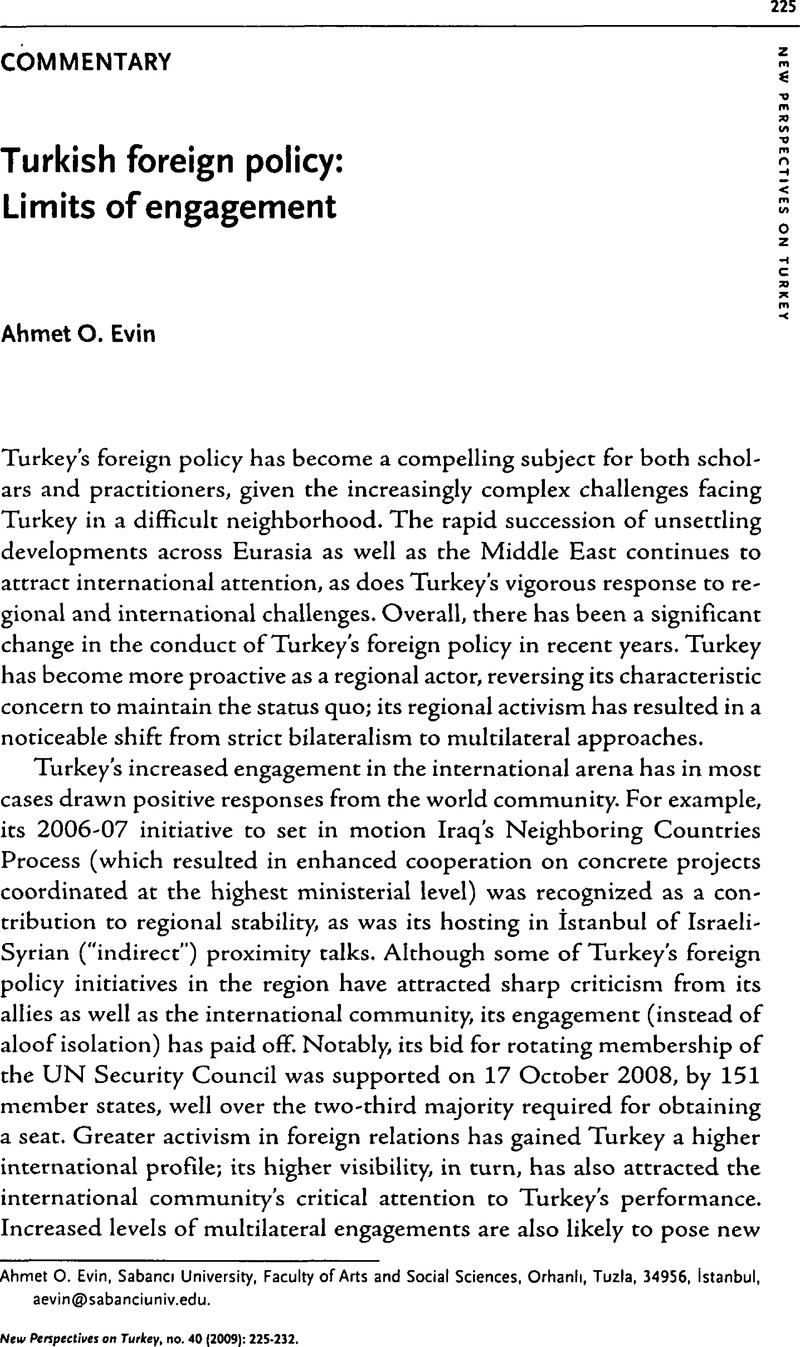Article contents
Turkish foreign policy: Limits of engagement
Published online by Cambridge University Press: 21 July 2015
Abstract

- Type
- Commentaries
- Information
- New Perspectives on Turkey , Volume 40: Special Issue on Turkish Foreign Policy , Spring 2009 , pp. 225 - 232
- Copyright
- Copyright © New Perspectives on Turkey 2006
References
1 Tamara Cofman Wittes, “The New U.S. Proposal for Greater Middle East Initiative: An Evaluation, http://www.brookings.edu/papers/2004/0510middleeast_wittes.aspx.
2 Ahmet Davutoğlu, in particular, has argued that its Ottoman past provides “strategic depth” to Turkey’s foreign policy toward the Muslim world: see, Davutoğlu, Ahmet, Stratejik Derinlik (İstanbul: Küre Yayınları, 2001), 129–49Google Scholar.
3 Murinson, Alexander, “The Strategic Depth Doctrine of Turkish Foreign Policy,” Middle Eastern Studies 42, no. 6 (2006): 947CrossRefGoogle Scholar.
4 Ibid.: 948.
5 Foreign Minister Abdullah Gül as reported by the BBC World Service, Friday, 17 February 2006, http://news.bbc.co.Uk/2/hi/middle_east/4724498.stm.
- 1
- Cited by


